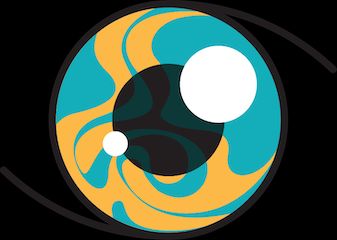Escitalopram is a generic prescription drug used to treat depression and anxiety. Escitalopram comes in oral forms, including an oral tablet.
Specifically, doctors prescribe escitalopram to treat:
- major depressive disorder (MDD), commonly referred to as depression, in adults and some children
- generalized anxiety disorder (GAD) in adults
To learn more about MDD and GAD and how escitalopram treats them, see the “What is escitalopram oral tablet used for?” section below.
Escitalopram oral tablet basics
Escitalopram is classified as a selective serotonin reuptake inhibitor (SSRI).
You’ll take escitalopram oral tablets by mouth.
Note: Escitalopram also comes as an oral suspension (a type of liquid mixture). This article only describes the oral tablet form. If you’d like to learn about escitalopram’s other form, talk with your doctor or pharmacist.
Escitalopram oral tablet brand-name versions
Escitalopram is available as the brand-name drug called Lexapro.
Lexapro has the same approved uses as escitalopram. In addition, the Food and Drug Administration (FDA) has approved Lexapro to treat GAD in some children. Due to marketing rights, escitalopram is not approved to treat GAD in children, but it could be prescribed off-label for this purpose. With off-label use, doctors prescribe a drug for a purpose other than what it’s approved for by the FDA.
Escitalopram oral tablet is a generic medication, which means it’s an exact copy of the active drug in a brand-name medication. The brand-name medication that escitalopram oral tablet is based on is called Lexapro.
Generic drugs are thought to be as safe and effective as the brand-name drug they’re based on. In general, generics usually cost less than brand-name drugs.
If you’d like to know more about using Lexapro instead of escitalopram oral tablet, talk with your doctor. And see this article to learn more about the differences between generic and brand-name drugs.
Like most drugs, escitalopram oral tablets may cause mild or serious side effects. The lists below describe some of the more common side effects. These lists don’t include all possible side effects.
Keep in mind that side effects of a drug can depend on:
- your age
- your prescribed dosage
- other health conditions you have
- other medications you may be taking
Your doctor or pharmacist can tell you more about the potential side effects of escitalopram. They can also suggest ways to help reduce side effects.
Mild side effects
Here’s a short list of some of the mild side effects that escitalopram oral tablets can cause. To learn about other mild side effects, talk with your doctor or pharmacist, or read the drug’s prescribing information.
Mild side effects reported in studies of escitalopram oral tablets include:
- insomnia (trouble falling asleep or staying asleep)
- nausea
- extreme sleepiness or drowsiness
- fatigue (low energy)
- sweating more than usual
- sexual side effects, such as low sex drive*
* For more information on this side effect, see the “Side effect focus” section below.
Mild side effects of many drugs may go away within a few days or a couple of weeks. But if they become bothersome, talk with your doctor or pharmacist.
Serious side effects
Serious side effects from escitalopram oral tablets can occur, but they aren’t common. If you have serious side effects, call your doctor right away. However, if you think you’re having a medical emergency, you should call 911 or your local emergency number.
Serious side effects reported in studies of escitalopram oral tablets include:
- bruising or bleeding more easily than usual
- low sodium level
- mania or hypomania (atypically high levels of energy and excitement)
- seizures
- serotonin syndrome (a condition caused by high levels of a chemical called serotonin)
- trouble thinking or coordinating your muscle movements
- boxed warning: suicidal thoughts and behaviors in children and young adults*
- allergic reaction*
- withdrawal symptoms if you suddenly stop taking escitalopram†
* For more information on this side effect, see the “Side effect focus” section below.
† For more information about this side effect, see the “What are some frequently asked questions about escitalopram oral tablet?” section below.
Side effect focus
Learn more about some of the side effects escitalopram oral tablets may cause.
Boxed warning
Escitalopram oral tablet has a boxed warning. This is a serious warning from the Food and Drug Administration (FDA).
Suicidal thoughts and behaviors. Drugs that treat depression can increase the risk of suicidal thoughts and behaviors in children and young adults. This includes escitalopram oral tablets. But keep in mind that escitalopram is not used to treat depression in children younger than 12 years of age.
This risk is highest during the first few months of therapy and after any dosage changes.
Watch for the following symptoms, and tell your doctor right away if you:
- have thoughts of suicide or self-harm, or try to hurt yourself
- act aggressively or violently
- have new or worsened depression
- have new or worsened anxiety or panic attacks
- feel agitated, restless, angry, or irritable
- have trouble sleeping
What might help
Tell your doctor right way about any unusual changes in mood, feelings, thoughts, or behaviors while taking escitalopram. Your doctor may change your treatment plan and recommend you stop taking escitalopram.
Help is out there
If you or someone you know is in crisis and considering suicide or self-harm, please seek support:
- Call or text the 988 Suicide and Crisis Lifeline at 988.
- Text HOME to the Crisis Text Line at 741741.
- Not in the United States? Find a helpline in your country with Befrienders Worldwide.
- Call 911 or your local emergency services number if you feel safe to do so.
If you’re calling on behalf of someone else, stay with them until help arrives. You may remove weapons or substances that can cause harm if you can do so safely.
If you are not in the same household, stay on the phone with them until help arrives.
Sexual side effects
You may have sexual side effects while you’re taking escitalopram oral tablets. These were common side effects in studies of the drug.
Sexual side effects in males* may include:
- delayed ejaculation (a condition in which more than 30 minutes of sexual stimulation is needed to bring ejaculation)
- erectile dysfunction (inability to get or keep an erection)
- low libido (low sex drive)
Sexual side effects in females* may include:
- low libido
- inability to have an orgasm
* In this article, we use the terms “male” and “female” to refer to someone’s sex assigned at birth. For information about the difference between sex and gender, see this article.
What might help
If you have sexual side effects while taking escitalopram oral tablets, talk with your doctor. They may order tests to check for possible causes of this side effect. For example, they may check to see whether you have any hormone changes. They may also have suggestions for helping to improve your libido. For a few tips on increasing libido, see this article.
Allergic reactionSome people may have an allergic reaction to escitalopram oral tablets. Allergic reactions to escitalopram have occurred after completion of the drug’s initial studies.
Symptoms of a mild allergic reaction can include:
- skin rash
- itchiness
- flushing (temporary warmth, redness, or deepening of skin color)
A more severe allergic reaction is rare but possible. Symptoms of a severe allergic reaction can include swelling under your skin, typically in your eyelids, lips, hands, or feet. They can also include swelling of your tongue, mouth, or throat, which can cause trouble breathing.
Call your doctor right away if you have an allergic reaction to escitalopram oral tablets. But if you think you’re having a medical emergency, call 911 or your local emergency number.
Taking medications, vaccines, foods, and other things with a certain drug can affect how the drug works. These effects are called interactions.
Before taking escitalopram oral tablets, be sure to tell your doctor about all medications you take, including prescription and over-the-counter types. Also describe any vitamins, herbs, or supplements you use. Your doctor or pharmacist can tell you about any interactions these items may cause with escitalopram.
Interactions with drugs or supplements
Escitalopram oral tablet can interact with several types of drugs. These drugs include:
- antidepressant drugs
- migraine drugs, such as sumatriptan (Imitrex)
- drugs that affect your central nervous system, such as benzodiazepines
- drugs that increase your serotonin level, such as amitriptyline
- drugs that increase your risk of bleeding, such as aspirin
- drugs broken down in your body by an enzyme (type of protein) called CYP2D6, such as desipramine (Norpramin)
- the acid reflux drug cimetidine (Tagamet HB)
- the heart failure drug digoxin (Lanoxin)
- the bipolar disorder drug lithium (Lithobid)
- the Tourette syndrome drug pimozide*
- the asthma drug theophylline (Theo-24)
- the blood thinner drug warfarin (Jantoven)
- the seizure drug carbamazepine (Carbatrol)
- the insomnia drug triazolam (Halcion)
- the antifungal drug ketoconazole
- the HIV drug ritonavir (Norvir)
- the heart drug metoprolol (Lopressor)
- the herbal supplement St. John’s wort
* Because of this interaction, you should not take pimozide if you’re taking escitalopram.
This list does not contain all types of drugs that may interact with escitalopram oral tablet. Your doctor or pharmacist can tell you more about these interactions and any others that may occur with use of this drug.
Other interactions
It’s possible that drugs other than those listed above may interact with escitalopram oral tablets. Read on to learn about one possible interaction.
Escitalopram oral tablet and cannabis (marijuana)
The manufacturer of escitalopram oral tablet didn’t look at interactions with cannabis (also called marijuana or weed).
But both escitalopram oral tablets and cannabis can lead to serotonin syndrome. (With this condition, you have high levels of a chemical called serotonin.) So taking these drugs together can increase your risk of serotonin syndrome even more.
Talk with your doctor before using any drugs with escitalopram oral tablet.
Some important topics to discuss with your doctor when considering escitalopram oral tablet treatment include:
- your overall health
- any medical conditions you may have
These considerations and others are described below in more detail.
Boxed warning
Escitalopram oral tablet has a boxed warning for suicidal thoughts and behaviors in children and young adults. A boxed warning is a serious warning from the Food and Drug Administration (FDA).
For more information about this warning, see the “What are escitalopram oral tablet’s side effects?” section above.
Other warnings
Escitalopram oral tablets may not be right for you if you have certain medical conditions or other factors that affect your health. Talk with your doctor about your health history before you take escitalopram. Factors to consider include those in the list below.
- Bipolar disorder: Before taking escitalopram oral tablets, tell your doctor if you have bipolar disorder or had it in the past. Escitalopram can increase your risk of mania or hypomania (atypically high levels of energy and excitement). Talk with your doctor about your risk of these side effects while you’re taking escitalopram.
- Monoamine oxidase inhibitors (MAOIs): MAOIs are a group of medications used to treat depression. Tell your doctor if you take an MAOI such as phenelzine (Nardil) or selegiline (Zelapar). You should not take an MAOI at the same time as you’re taking escitalopram oral tablets. Taking both of these drugs can increase your risk of serotonin syndrome. If you’re switching treatments, your doctor will have you wait for a period between treatments: They will have you wait 2 weeks or more after you’ve stopped taking an MAOI before you start escitalopram. If you stop taking escitalopram, your doctor will have you wait 2 weeks before starting an MAOI.
- Glaucoma: If you have glaucoma, tell your doctor before starting escitalopram oral tablets. The drug can increase your risk of a glaucoma attack.
- Heart problems: Before taking escitalopram oral tablets, tell your doctor about any heart problems you have. Escitalopram can cause serious heart rhythm problems, such as sinus tachycardia, long QT syndrome, and torsades de pointes. You may have a higher risk of these side effects if you already have heart problems.
- Kidney or liver problems: If you have kidney or liver problems, tell your doctor before starting escitalopram oral tablets. Your doctor may need to adjust your dosage of the drug. Or they may monitor you more closely for side effects from the drug.
- Seizures: Tell your doctor if you have seizures before taking escitalopram oral tablets. The drug can cause seizures. So you may have a higher risk of this side effect if you already have a seizure disorder.
- Allergic reaction: If you’ve had an allergic reaction to escitalopram or any of its ingredients, you should not take the tablets. Ask your doctor about other medications that might be better options for you.
Use with alcohol
It’s recommended that you avoid drinking alcohol while you’re taking escitalopram oral tablets.
Drinking alcohol while taking escitalopram oral tablets can worsen certain side effects of the drug. These include:
- insomnia (trouble falling asleep or staying asleep)
- nausea
- extreme sleepiness or drowsiness
- fatigue (low energy)
- trouble thinking or coordinating your muscle movements
If you drink alcohol, talk with your doctor about whether it’s safe for you to drink while you’re taking escitalopram.
Pregnancy and breastfeeding
Escitalopram oral tablet hasn’t been studied in pregnancy.
But other selective serotonin reuptake inhibitors (SSRIs) have been studied in pregnancy. These studies suggest that SSRIs, such as escitalopram, may cause harm in newborns who were exposed to the drug during pregnancy.
Possible symptoms that may happen in newborns after birth include:
- decreased muscle tone
- pulmonary hypertension (a lung condition that causes a lack of oxygen in your body)
- tremor
- trouble breathing
- trouble eating
- unstable body temperature
If you take escitalopram oral tablets during pregnancy, consider enrolling in a pregnancy registry. Pregnancy registries collect information about the effects of a drug when used during pregnancy. This information can help researchers understand the risks of using the drug during pregnancy.
You may be able to enroll in the National Pregnancy Registry for Antidepressants and report side effects of escitalopram if you take it during pregnancy. To learn more, visit the registry’s site or call 866-961-2388. Be sure to talk with your doctor about the risks and benefits of taking escitalopram oral tablets during pregnancy.
Escitalopram can pass into breast milk. So if you’re breastfeeding while taking this drug, watch your child for these side effects:
- agitation
- excess sleepiness
- trouble eating or gaining weight
- restlessness
Talk with your doctor about the benefits and risks of taking escitalopram while breastfeeding.
Your doctor will recommend the dosage of escitalopram oral tablet that’s right for you. Below are commonly used dosages, but always take the dosage your doctor prescribes.
Drug forms and strengths
Escitalopram comes as an oral tablet. It also comes as an oral suspension (a type of liquid mixture). Only the oral tablet form is described in this article. If you’d like to learn about escitalopram’s other form, talk with your doctor or pharmacist.
Escitalopram oral tablets are available in the following strengths:
- 5 milligrams (mg)
- 10 mg
- 20 mg
Dosage
For major depressive disorder (MDD) or generalized anxiety disorder (GAD), you’ll take escitalopram oral tablets once each day.
For MDD or GAD, you’ll likely start with a daily dose of the 10-mg escitalopram oral tablets. After 1 week, your doctor may increase your dosage. The maximum daily dose of this drug for MDD or GAD is 20 mg.
Escitalopram oral tablets may be used to treat MDD in children ages 12 years and older. The dosage information for children is the same as above, except doctors will wait 3 weeks before any dosage increase.
Taking escitalopram oral tablet
You’ll take escitalopram oral tablets by mouth.
You can take escitalopram any time of day. But the best time to take the drug depends on any side effects that you have.
For example, if you have insomnia (trouble falling asleep or staying asleep) with escitalopram, it may be best to take the drug in the morning. But if you experience excessive sleepiness or drowsiness with the drug, it may be best to take your dose at bedtime. Whatever time works best for you, take it around the same time each day.
Questions about taking escitalopram oral tablet
Here’s a list of common questions about taking escitalopram oral tablets.
- What if I miss a dose of escitalopram oral tablet? Take your missed dose as soon as you remember. But if it’s almost time for your next dose, just skip the missed dose. Then take your next dose at its regular time. If you aren’t sure whether to take a dose or skip it, talk with your doctor or pharmacist.
- Will I need to use escitalopram oral tablet long term? Yes, escitalopram may be used long term. If the drug is working for you and it’s not causing bothersome side effects, your doctor may prescribe it for long-term use.
- Can escitalopram oral tablet be chewed, crushed, or split? You can’t chew, crush, or split 5-mg tablets of escitalopram. But you can crush or split 10-mg and 20-mg tablets.
- Should I take escitalopram oral tablet with food? You can take escitalopram oral tablets with or without food.
- How long does escitalopram oral tablet take to work? After starting escitalopram oral tablets, it will take several weeks or more for your symptoms to ease. Talk with your doctor about when you can expect to notice a change.
Questions for your doctorYou may have questions about escitalopram oral tablet and your treatment plan. It’s important to discuss all your concerns with your doctor.
Here are a few tips that might help guide your discussion:
- Before your appointment, write down questions like:
- How will escitalopram oral tablet affect my body, mood, or lifestyle?
- Bring someone with you to your appointment if doing so will help you feel more comfortable.
- If you don’t understand something related to your condition or treatment, ask your doctor to explain it to you.
Remember, your doctor and other healthcare professionals are available to help you. And they want you to get the best care possible. So don’t be afraid to ask questions or offer feedback on your treatment.
Find answers to some commonly asked questions about escitalopram oral tablet.
Will I have withdrawal symptoms if I stop taking escitalopram?
Yes, escitalopram may cause withdrawal symptoms if you suddenly stop taking it. Withdrawal symptoms are uncomfortable side effects that can occur when you stop taking a drug your body is used to.
Symptoms of withdrawal from escitalopram oral tablets can include:
- anxiety, depression, or other changes in mood
- fatigue (low energy)
- headache
- trouble sleeping
Do not stop taking escitalopram unless your doctor recommends it and feels it’s safe to do so. When it’s time to stop taking the drug, your doctor will slowly lower your dose over time. This helps to lessen your risk of withdrawal symptoms.
How does escitalopram work? And what is its half-life?
Escitalopram belongs to a group of drugs called selective serotonin reuptake inhibitors (SSRIs).
It works by increasing the level of a chemical called serotonin in your brain. This helps to improve your mood and emotions.
The way a drug works in your body is called its mechanism of action.
A drug’s half-life is the time it takes for the amount of drug in your body to decrease by half. The half-life of escitalopram is 27 to 32 hours. In other words, it takes about 27 to 32 hours for your body to get rid of half of a dose of escitalopram.
Will escitalopram make me feel ‘high’? And is it addictive?
No, it isn’t likely that you’ll feel “high” with escitalopram. Feeling “high” (euphoric) wasn’t a side effect reported in studies of the drug.
And escitalopram hasn’t been shown to be addictive. (With addiction, a person takes a drug even if it’s causing harmful outcomes.)
Does escitalopram cause weight gain or weight loss?
Weight gain and weight loss weren’t reported as side effects in studies of escitalopram.
Escitalopram is an SSRI. Other SSRI drugs have been linked to weight changes.
Keep in mind that depression, which escitalopram treats, can also cause weight changes. So it’s possible that weight gain or weight loss might happen while you’re taking escitalopram. These changes may happen because your depression is getting better and not because of the drug itself.
Some studies have shown that children who are breastfed by people taking escitalopram may have trouble gaining weight.
If you’re concerned about weight gain or weight loss while taking escitalopram, talk with your doctor. They can recommend other ways to manage your weight.
Is escitalopram a controlled substance?
No, escitalopram isn’t a controlled substance.
Controlled substances are drugs that may be misused or cause physical dependence. (With misuse, a person takes a drug in a way other than how it was prescribed. And with dependence, your body needs the drug to feel like it usually does.)
These effects aren’t known to happen with escitalopram. But your doctor will monitor you to make sure the drug is taken safely during treatment.
Is escitalopram a benzodiazepine?
No, escitalopram isn’t a benzodiazepine. It belongs to group of drugs called SSRIs, which are used to treat depression and anxiety.
Benzodiazepines are also used to treat anxiety. But they work by affecting different chemicals in the brain than SSRIs.
If you have questions about how escitalopram and benzodiazepines are alike and different, talk with your doctor or pharmacist.
If you have depression or anxiety, your doctor may prescribe escitalopram oral tablet for you.
It’s a prescription drug that’s used to treat:
- major depressive disorder (MDD) in adults and children ages 12 years and older
- generalized anxiety disorder (GAD) in adults
The brand-name version of escitalopram, Lexapro, has the same approved uses as escitalopram. In addition, the Food and Drug Administration (FDA) has approved Lexapro to treat GAD in children ages 7 years and older. Due to marketing rights, escitalopram is not approved to treat GAD in children, but it could be prescribed off-label for this purpose. With off-label use, doctors prescribe a drug for a purpose other than what it’s approved for by the FDA.
With MDD, you have symptoms of depression almost every day for at least 2 weeks. Symptoms of depression can include:
- changes in appetite or weight
- changes in mood, such as feeling hopeless, irritable, or angry
- loss of interest in activities that you once enjoyed
With GAD, you have symptoms of anxiety most days for at least 6 months. Symptoms of anxiety can include:
- fatigue (low energy)
- feelings of worry
- problems with sleep
- trouble concentrating
Escitalopram is a type of antidepressant. It belongs to a group of drugs called selective serotonin reuptake inhibitors (SSRIs). This drug works by increasing the level of a chemical called serotonin in your brain. This helps to improve your mood and emotions.
Both escitalopram (Lexapro) and citalopram (Celexa) are used to treat depression. And both medications belong to a group of drugs called selective serotonin reuptake inhibitors (SSRIs).
For a comparison of the brand-name versions of escitalopram and citalopram, see this article on Lexapro and Celexa. And talk with your doctor about which drug is right for you.
Do not take more escitalopram oral tablets than your doctor prescribes. Using more than this can lead to serious side effects.
Symptoms of overdose
Symptoms caused by an overdose can include:
- coma
- dizziness
- extreme sleepiness or drowsiness
- low blood pressure
- insomnia (trouble falling asleep or staying asleep)
- nausea
- seizures
- serious heart rhythm problems, such as sinus tachycardia, long QT syndrome, and torsades de pointes
- vomiting
- in rare cases, kidney failure
What to do in case you take too much escitalopram oral tablet
Call your doctor if you think you’ve taken too much escitalopram oral tablet. You can also call 800-222-1222 to reach America’s Poison Centers or use its online resource. However, if you have severe symptoms, immediately call 911 (or your local emergency number) or go to the nearest emergency room.
Costs of prescription drugs can vary depending on many factors. These factors include what your insurance plan covers and which pharmacy you use.
Financial assistance to help you pay for escitalopram oral tablet may be available. Medicine Assistance Tool and NeedyMeds are two websites that provide resources to help reduce the cost of escitalopram oral tablet.
These websites also offer tools to help you find low-cost healthcare and certain educational resources. To learn more, visit their websites.
You can visit Optum Perks to get price estimates of what you’d pay for escitalopram when using coupons from the site. See the coupon options below. (Note: Optum Perks coupons cannot be used with any insurance copays or benefits.)
Both escitalopram (Lexapro) and sertraline (Zoloft) are used to treat depression. And both medications belong to a group of drugs called selective serotonin reuptake inhibitors (SSRIs).
If you’d like to learn more about the similarities and differences of the brand-name versions of escitalopram and sertraline, see this article comparing Lexapro and Zoloft. And check with your doctor about which drug they recommend for you.
Studies of escitalopram oral tablet showed a low chance of drug misuse. (Misuse means using the drug in a way other than how it was prescribed.)
Be sure to take escitalopram oral tablets exactly as your doctor prescribes them. Your doctor may monitor you periodically during treatment for signs of misuse.
If you have questions about using escitalopram oral tablet for depression or anxiety, talk with your doctor.
You may want to ask your doctor about other treatments for these conditions. Here are a few articles you may find helpful:
- How Can I Get Help for Depression?
- Is Your Depression Treatment Working?
- What Medications Help Treat Depression?
- Alternative Treatments for Anxiety
- Drugs to Treat Anxiety Disorder
Below is a list of questions you can ask your doctor about escitalopram oral tablet:
- Do escitalopram oral tablets interact with any medications I’m taking?
- Should I use other treatments for depression or anxiety along with escitalopram?
- Will my depression or anxiety come back after I stop taking escitalopram oral tablets?
Q:
My doctor said escitalopram oral tablet can cause a side effect called serotonin syndrome. What are possible symptoms of this side effect that I should watch for?
AnonymousA:
Escitalopram works by increasing the level of a chemical called serotonin in your brain. But if the level becomes too high, a condition called serotonin syndrome can happen.
Call your doctor right away if you have symptoms of this condition. These can include:
- confusion
- agitation or irritation
- feeling disoriented
- anxiousness
- muscle spasms or rigidity
- tremors
- nausea
- hallucinations (seeing or hearing things that aren’t really there)
- sweating
- low blood pressure
- fast heart rate
- dilated pupils
It’s important to watch for severe symptoms of serotonin syndrome, which can include the following:
If you experience these symptoms or notice someone else has them, it’s crucial to call 911 or get medical help right away.
The Healthline Pharmacist TeamAnswers represent the opinions of our medical experts. All content is strictly informational and should not be considered medical advice.Disclaimer: Healthline has made every effort to make certain that all information is factually correct, comprehensive, and up to date. However, this article should not be used as a substitute for the knowledge and expertise of a licensed healthcare professional. You should always consult your doctor or other healthcare professional before taking any medication. The drug information contained herein is subject to change and is not intended to cover all possible uses, directions, precautions, warnings, drug interactions, allergic reactions, or adverse effects. The absence of warnings or other information for a given drug does not indicate that the drug or drug combination is safe, effective, or appropriate for all patients or all specific uses.








